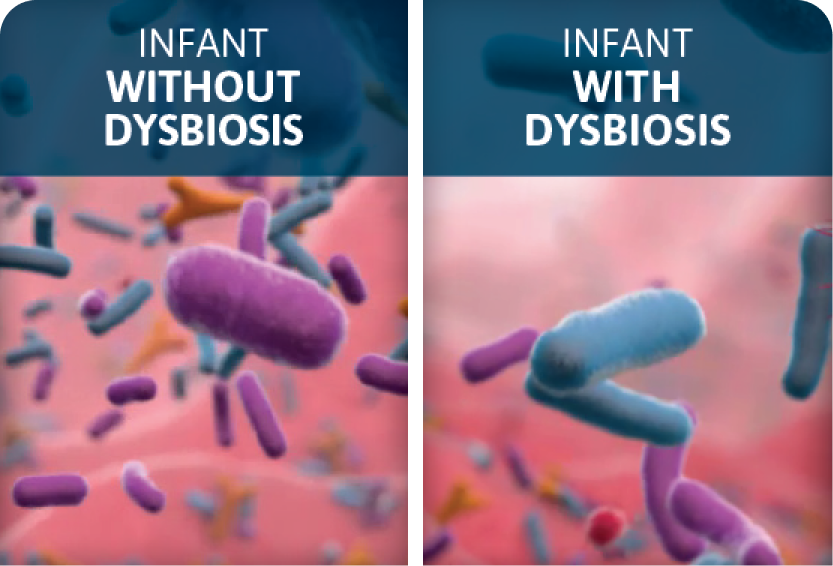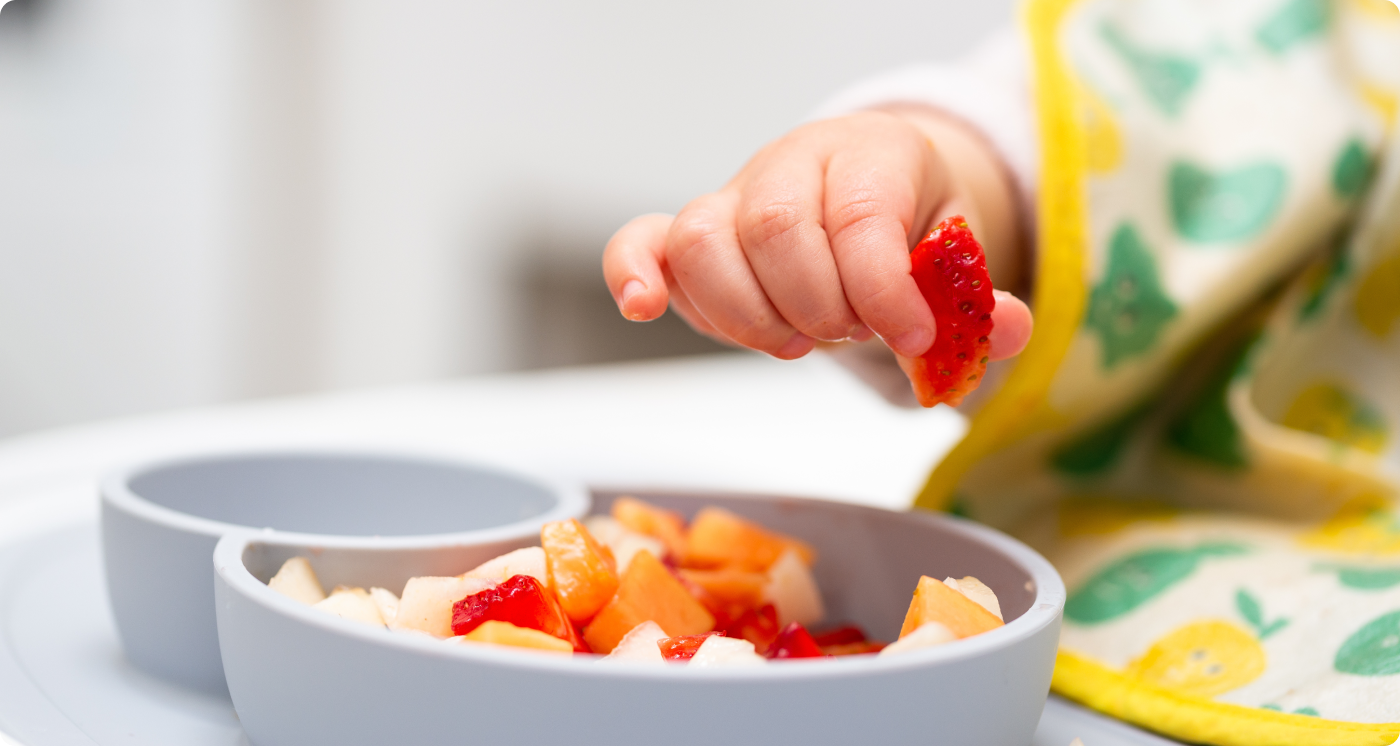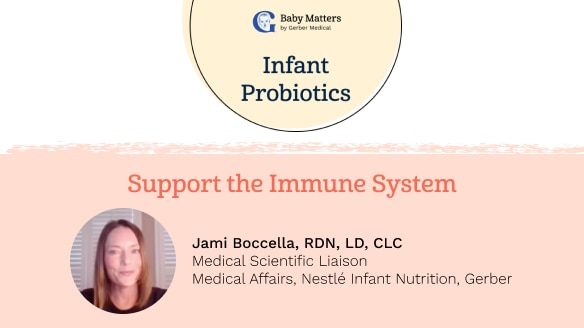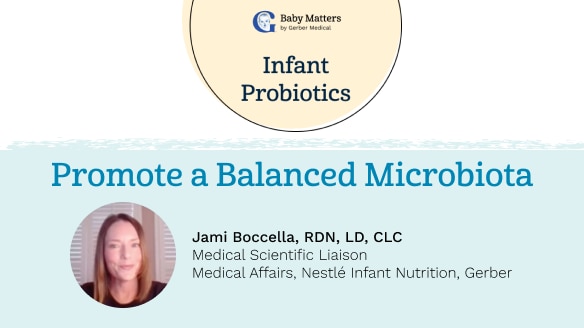Infant Gut Microbiota Comparison
2 min read • By: Gerber Medical Hub

Quick summary
Infants' microbiota is influenced by birth mode, with vaginal birth exposing them to beneficial bacteria like bifidobacteria, while C-section babies face colonization delays. CMPA and colic lead to microbiota imbalances. Probiotics such as B. lactis Bb12 aid immune development and microbiota balance in C-section babies, while L. reuteri DSM 17938 reduces fussiness in colicky infants and L. rhamnosus GG restores balance post-digestive issues.
picture_as_pdfVIEW PDF INFOGRAPHIC
An infant's microbiota is influenced by many factors, such as:

Infants born vaginally are exposed to the mother’s microbiota and beneficial bacteria like bifidobacteria upon delivery, whereas C-section delivered infants miss out on this early exposure and have a delay in bifidobacteria colonization

Infants with cow's milk protein allergy (CMPA) have been shown to have less bifidobacteria in their microbiota than non-allergic infants

The gut microbiota of infants with colic has been shown to have less lactobacilli species than infants without colic

The balance of bacteria can be disrupted by occasional digestive upset. Infants with dysbiosis have an imbalanced microbiota
Supplementing with probiotics can help to increase levels of good bacteria in baby's gut
Probiotic B. lactis Bb12
- A probiotic similar to the bifidobacteria naturally found in breastmilk and among the most studied probiotics among infants
- Clinically shown to support an infant's developing immune system by increasing sIgA, especially in infants born via C-section
- Supplementation with B. lactis has been shown to improve levels of bifidobacteria and balance the microbiota
- Helps to increase gut barrier function
Probiotic L. reuteri DSM 17938
- The most studied probiotic in functional GI disorders such as colic
- In colicky infants, clinically shown to:
- reduce crying time and fussiness
- increase lactobacilli and decrease E. coli (a gas producing bacteria)
- Shown to balance the microbiota and play a role in the gut-brain axis communication
Probiotic L. rhamnosus GG
- One of the most clinically studied probiotics
- Naturally promotes bacterial balance occasionally lost to digestive upset
- Helps balance a baby's microbiota



